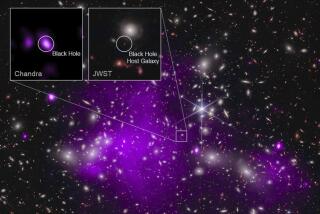‘Cosmic yardstick’: Record-setting supernova is from early universe
Talk about a long trip: The explosion that created Supernova UDS10Wil, the oldest supernova discovered to date, took place more than 10 billion years ago, but light from the explosion only recently became visible to the Hubble Space Telescope.
Scientists estimate that this supernova is 350 million years older than the previous oldest known supernova, which was discovered just a few months ago.
Scientists still don’t know much about Supernova UDS10Wil, dubbed SN Wilson for short, but they are hoping its discovery can help them to answer questions about how supernovae were created in the early universe and to measure how fast the universe is expanding.
Mars quiz: How well do you know the Red Planet?
SN Wilson is a type Ia supernova, a special class of supernovae that almost always explode in the same way, and produce the same amount of light. This reliable sameness makes them useful tools for measuring the expansion of the universe.
“The Type Ia supernovae give us the most precise yardstick ever built,” said astronomer Steve Rodney of Johns Hopkins University, part of the team that discovered the supernova, in a statement. “The more we understand these supernovae, the more precise our cosmic yardstick will become.”
David Jones, Rodney’s colleague at Johns Hopkins and the lead author of the paper that describes the discovery, said the team will also investigate how supernovae behaved 10 billion years ago.
“So far we haven’t found evidence that they behave differently, but the early universe was a substantially different place than it is now,” he said.
But scientists will have to rely on images already collected by the Hubble for their investigations.
Jones said his team first spotted SN Wilson at the end of 2010. The ancient explosion was visible for just a few months, and when they looked for it again a year later, it was gone.
The team’s results will be published in the Astrophysical Journal.







